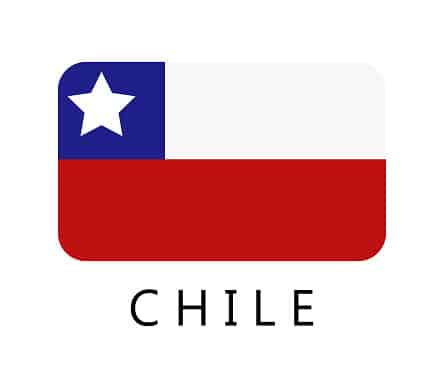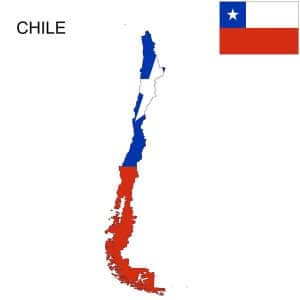Headlines
Chile: A Brief Overview of Its History, from Pre-Columbian Times to the Present Day

Chile has a long and rich history that spans from prehistoric times to the present day. According to some sources, the first human beings arrived in Chile at about 12,000 BC and settled in the fertile valleys and coastal areas. They developed diverse cultures and societies, some of which were influenced by the Inca empire that briefly extended into northern Chile in the 15th century. The Spanish conquistadors arrived in the 16th century and colonized the region, imposing their language, religion, and administration. Chile was part of the Spanish empire until the early 19th century, when it declared its independence after a series of wars and revolutions that involved local patriots, royalists, and foreign allies.
See Population, Official Language And More…

Chile

Chile
The newly independent Chile faced many challenges and conflicts in the 19th and 20th centuries, both internally and externally. The country went through periods of civil war, dictatorship, coup d’état, reform, and democracy, as well as wars with Peru, Bolivia, and Argentina over territory and resources. Chile also experienced social and economic changes, such as industrialization, urbanization, immigration, education, labor movements, and women’s rights. Chile suffered a brutal military dictatorship from 1973 to 1990, led by General Augusto Pinochet, who suppressed human rights and political opposition. The dictatorship ended with a peaceful transition to democracy, which restored civil liberties and constitutional rule.
Chile is now a stable and prosperous democracy, with a diverse and multicultural society, a strong economy, and a prominent role in regional and global affairs. Chile has established diplomatic relations with many countries, including its former enemies, and participates in various international organizations and treaties. Chile is also known for its natural beauty, cultural heritage, and artistic expression.
- The first European to sight Chilean territory was Ferdinand Magellan, who crossed the Strait of Magellan on November 1, 1520.
- The Spanish conquistador Diego de Almagro is usually considered the discoverer of Chile, as he led an expedition into the region in 1535-1536, but he failed to establish a permanent settlement.
- The indigenous people of Chile resisted the Spanish invasion for more than three centuries, especially the Mapuche people, who fought in the Arauco War from 1536 to 1818.
- Chile declared its independence from Spain on February 12, 1818, after a series of battles led by Bernardo O’Higgins and José de San Martín, who are regarded as the founding fathers of Chile.
- Chile expanded its territory in the 19th century by winning the War of the Pacific against Peru and Bolivia (1879-1883), which gave Chile control over the rich nitrate deposits in the Atacama Desert.
- Chile experienced a period of social and political reform in the early 20th century, led by Arturo Alessandri and Pedro Aguirre Cerda, who introduced measures such as labor rights, social security, education, and health care.
- Chile suffered a coup d’état on September 11, 1973, when the military overthrew the socialist president Salvador Allende and installed a dictatorship under Augusto Pinochet, who ruled with an iron fist until 1990.
- Chile restored democracy in 1990, after a national plebiscite rejected Pinochet’s rule in 1988. The first democratically elected president was Patricio Aylwin, who initiated a process of reconciliation and justice for the victims of the dictatorship.
- Chile has become one of the most developed and stable countries in Latin America, with a high human development index, a market-oriented economy, and a strong civil society. Some of the recent presidents of Chile include Ricardo Lagos, Michelle Bachelet, Sebastián Piñera, and Gabriel Boric.





